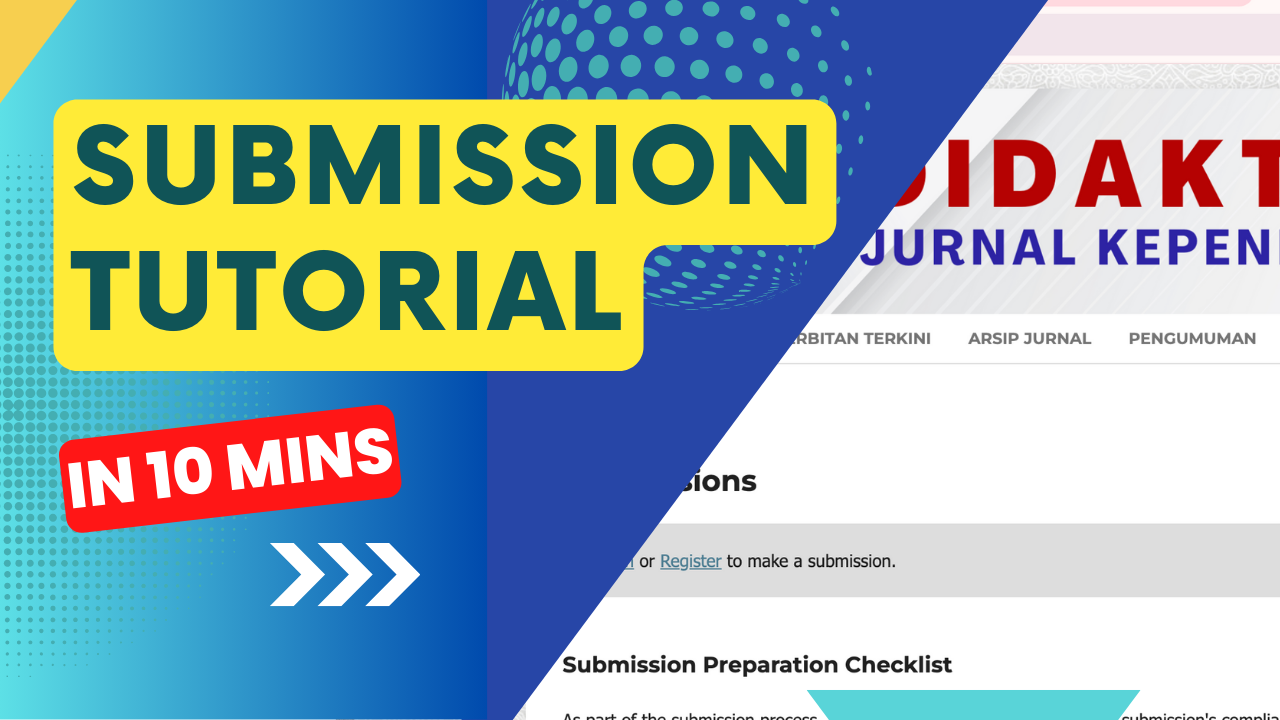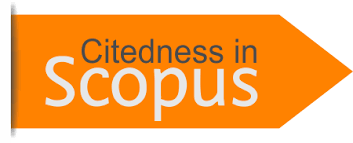A Philosophical Analysis of the Implementation of Vision, Mission, Strategies, and Goals of Junior High Schools to Improve Education Quality
Abstract
A school's vision, mission, strategy, and goals are key elements in designing and managing quality education, especially when based on strong philosophical values. All these elements, when based on philosophical values, form a strong foundation for quality education development. These values include ethical principles, morality, and philosophical beliefs that guide every decision and action in the educational context. By having a strong foundation of values, schools can create a learning environment of integrity, inclusiveness, and character-building for students by their educational vision and mission. The purpose of the research is to explore deeper information about the implementation of the school's vision, mission, and strategy to improve the quality of education based on philosophical values. The object of this research is SMPN 2 Margahayu and MTs Al Ihsan Baleendah, Bandung Regency. The method used is a qualitative approach with a case study method. In line with the case study research design, the data collection techniques used were interviews and documentation. The data analysis technique used is category analysis, which this technique groups data into categories or classifications to identify related patterns or variables. The results of this study show that in preparing the vision, mission, strategies, and goals of both schools, there are efforts to improve the quality of education. In addition, the vision, mission, strategies, and goals of the two schools contain philosophical values that are the objectives of national education.
Metrics
References
Agustang, A., Mutiara, I. A., & Asrifan, A. (2021). Masalah Pendidikan di Indonesia.
Banun, S., & Usman, N. (2016). Strategi Kepala Sekolah Dalam Meningkatkan Mutu Pendidikan Pada Smp Negeri 2 Unggul Mesjid Raya Kabupaten Aceh Besar. Jurnal Administrasi Pendidikan: Program Pascasarjana Unsyiah, 4(1).
bin Muhammad, U. (2023). Strategi Kepala Madrasah Dalam Meningkatkan Mutu Pendidikan di Madrasah Tsanawiyah Negeri 1 Probolinggo. Jurnal Educatio FKIP UNMA, 9(4), 1849–1856. https://doi.org/10.31949/educatio.v9i4.6327
Brown, G. A., Bull, J., & Pendlebury, M. (2013). Assessing student learning in higher education. Routledge.
Calam, A., Marhamah, A., & Nazaruddin, I. (2020). Reformulasi Visi, Misi dan Tujuan Sekolah. Al-Irsyad: Jurnal Pendidikan Dan Konseling, 10(2). https://doi.org/10.30829/al-irsyad.v10i2.8526
Creswell, J. W., & Poth, C. N. (2016). Qualitative inquiry and research design: Choosing among five approaches. Sage publications.
Cunningham, W. G., & Cordeiro, P. A. (2009). Educational leadership: A bridge to improved practice. (No Title).
Daga, A. T. (2020). Analisis Tujuan Dan Filsafat Kurikulum Sekolah Tinggi Keguruan Dan Ilmu Pendidikan Weetebula Dalam Perspektif Pengembangan Kurikulum Oliva-Gordon. Jurnal Edukasi Sumba (JES), 4(2), 138–152.
Damayanti, N. (2019). Pentingnya Kerjasama bagi Peningkatan Mutu Pendidikan. Pendidikan.
Danim, S. (2016). Visi baru manajemen sekolah.
Fullan, M. (2003). The moral imperative of school leadership. Corwin press.
Fullan, M. (2023). The principal 2.0: Three keys to maximizing impact. John Wiley & Sons.
Goldwyn, S. (2008). Educational administration: Theory, research, and practice. Journal of Educational Administration, 46(1), 123–127.
Hafizin, H., & Herman, H. (2022). Merumuskan Visi dan Misi Lembaga Pendidikan. Islamic Management: Jurnal Manajemen Pendidikan Islam, 5(01), 99–110.
Hargreaves, A., & Shirley, D. (2012). The global fourth way: The quest for educational excellence. Corwin Press.
Harsoyo, R. (2021). Model Pengembangan Mutu Pendidikan (Tinjauan Konsep Mutu Kaoru Ishikawa). Southeast Asian Journal of Islamic Education Management, 2(1), 95–112. https://doi.org/10.21154/sajiem.v2i1.44
Jensen, E. (2009). Teaching with poverty in mind: What being poor does to kids’ brains and what schools can do about it. AScD.
Karweti, E. (2010). Pengaruh kemampuan manajerial kepala sekolah dan faktor yang mempengaruhi motivasi kerja terhadap kinerja guru SLB di Kabupaten Subang. Jurnal Penelitian Pendidikan, 11(2), 77–89.
Kotter, J. P. (2007). Leading change: Why transformation efforts fail.
Kusnandi, K. (2018). Konsep dasar dan strategi penjaminan mutu pendidikan: Sebagai review kebijakan mutu Pendidikan. Indonesian Journal of Education Management & Administration Review, 1(2), 107–118. https://doi.org/10.4321/ijemar.v1i2.942
Leithwood, K., & Riehl, C. (2004). What we know about successful leadership. Practising Administrator, 26(4).
Loose, W. (2014). The principal: Three keys to maximizing impact. Journal of Catholic Education, 18(1), 208–211.
Mabin, V., & Marshall, S. (2012). Beyond Assessment: Assuring Student Learning in Higher Education.
Marzano, R. J., Waters, T., & McNulty, B. A. (2005). School leadership that works: From research to results. ASCD.
Mubarak, F. (2015). Faktor dan indikator mutu pendidikan islam. Management of Education, 1(1), 10–18.
Muhammad, A. (2009). Transforming school culture: How to overcome staff division. Solution Tree Press.
Mulyani, A. Y. (2022). Pengembangan Critical Thinking Dalam Peningkatan Mutu Pendidikan di Indonesia. DIAJAR: Jurnal Pendidikan Dan Pembelajaran, 1(1), 100–105.
Muslim, B., Harapan, E., & Kesumawati, N. (2020). Kepemimpinan Kepala Sekolah dalam Meningkatkan Mutu Pendidikan di SMA Negeri 1 Indralaya Selatan. Jurnal Intelektualita: Keislaman, Sosial Dan Sains, 9(1), 149–158. https://doi.org/10.19109/intelektualita.v9i1.5586
Noddings, N. (2013). Care and moral education. In Critical conversations in philosophy of education (pp. 137–148). Routledge.
Ozmon, H., & Craver, S. M. (1981). Philosophical foundations of education.
Puspita, D. G., & Andriani, D. E. (2021). Upaya Peningkatan Mutu Pendidikan Di Sekolah Menengah Pertama dan Permasalahannya. Jurnal Pendidikan Dan Kebudayaan, 6(1), 21–37. https://doi.org/10.24832/jpnk.v6i1.1734
Rozi, M. A. F. (2016). Strategi Peningkatan Mutu Pendidikan Islam. EDUKASI: Jurnal Pendidikan Islam, 4(2), 322–336.
Sujoko, E. (2017). Strategi peningkatan mutu sekolah berdasarkan analisis swot di sekolah menengah pertama. Kelola: Jurnal Manajemen Pendidikan, 4(1), 83–96. https://doi.org/10.24246/j.jk.2017.v4.i1.p83-96
Sukaningtyas, D. (2017). Pengembangan kapasitas manajemen sekolah dalam membangun pemahaman visi dan misi. Jurnal Cakrawala Pendidikan, 36(2), 257–266. https://doi.org/10.21831/cp.v36i2.11844
Yin, R. K. (2009). Case study research: Design and methods (Vol. 5). sage.
Yudhistira, F., Pangestu, A. D., Akbar, A., Hayatunnisa, M., Utari, L., Pratama, Y., & Noviyanti, I. (2023). Fungsi Dan Pengaruh Visi Misi Pada Sebuah Organisasi SD Negeri 02 Pulau Besar. Jurnal Ekonomi Dan Manajemen, 3(3), 178–189. https://doi.org/10.55606/optimal.v3i3.1816
Copyright (c) 2024 Siti Robiah

This work is licensed under a Creative Commons Attribution 4.0 International License.
Dengan mengirimkan naskah artikel, berarti penulis setuju dengan segala kebijakan yang ditetapkan oleh jurnal dan penerbit.
Penulis menyatakan bahwa:
- kebijakan ini telah diketahui dan disetujui bersama oleh semua penulis;
- naskah artikel belum dipublikasikan secara resmi sebelumnya di media ber-ISSN atau ber-ISBN yang terdaftar, kecuali dalam bentuk abstrak atau sebagai bagian dari materi kuliah, atau skripsi/tesis/disertasi yang tidak diterbitkan;
- naskah tidak sedang dalam proses editorial dan dipertimbangkan untuk publikasi di tempat lain;
- publikasi naskah ini telah disetujui oleh semua penulis, institusi afiliasi penulis, otoritas yang bertanggung jawab, dan lembaga di mana kegiatan telah dilakukan;
- naskah berisi materi yang aman dari pelanggaran hak cipta;
Perjanjian Hak Cipta dan Lisensi
- Penulis memiliki hak cipta dan hak kepemilikan lainnya yang terkait dengan artikel.
- Penulis memiliki hak dan diizinkan untuk menggunakan substansi artikel untuk karya-karya penulis berikutnya, termasuk untuk keperluan bahan/materi kuliah dan buku.
- Penulis menyerahkan hak publikasi pertama kepada jurnal dengan di bawah Lisensi Creative Commons (CC BY 4.0).
Pernyataan Lisensi CC BY 4.0
Anda diperbolehkan:
- Berbagi — menyalin dan menyebarluaskan kembali materi ini dalam bentuk atau format apapun;
- Adaptasi — menggubah, mengubah, dan membuat turunan dari materi ini untuk kepentingan apapun, termasuk kepentingan komersial.
Pemberi lisensi tidak dapat mencabut ketentuan di atas sepanjang Anda mematuhi ketentuan lisensi berikut ini.
- Atribusi — Anda harus mencantumkan nama yang sesuai, mencantumkan tautan terhadap lisensi, dan menyatakan bahwa telah ada perubahan yang dilakukan. Anda dapat melakukan hal ini dengan cara yang sesuai, namun tidak mengisyaratkan bahwa pemberi lisensi mendukung Anda atau penggunaan Anda.
- Tidak ada pembatasan tambahan — Anda tidak dapat menggunakan ketentuan hukum atau sarana kontrol teknologi yang secara hukum membatasi orang lain untuk melakukan hal-hal yang diizinkan lisensi ini.






.png)








